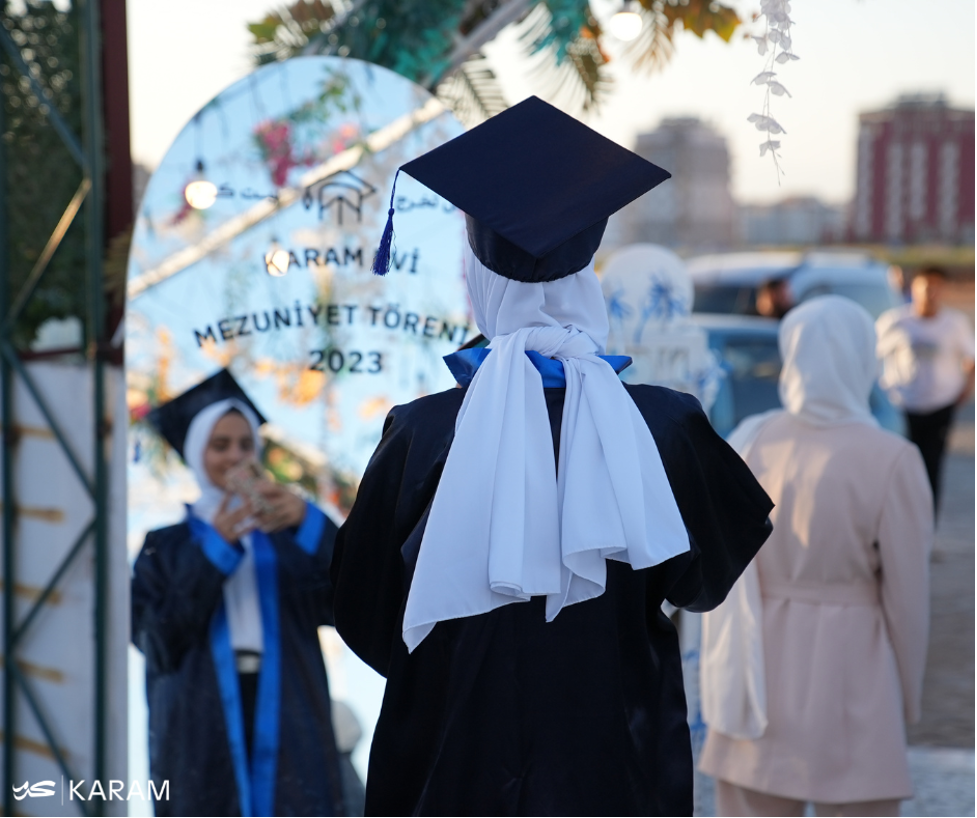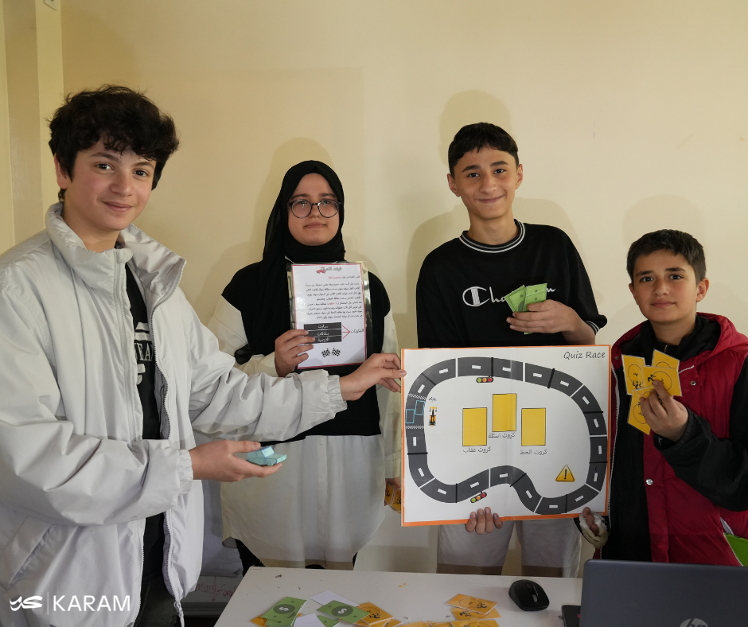karam foundation
The word karam means generosity in Arabic, which suitably describes an initiative designed to support, encourage and nurture. It’s important to note, however, that the inspiration for The Karam Foundation was rooted in a determination to redefine what it means to be a refugee; this foundation strives to meet the social/emotional needs of young Syrians as well as practical needs. As its website states, the focus is placed on where possibilities lie in the futures of young people rather than merely concentrating on what they have endured and survived. Phonetic Planet recently spoke with Nour Al Ghraowi, communications co-ordinator at The Karam Foundation to learn more about their mission to uplift the power and potential of Syrians everywhere.
Nour, can you tell us about the founding of Karam, and also about the people whom you aim to serve?
Lina Sergie Attar is founder and CEO of Karam Foundation. The idea began at her kitchen table, in 2007. Lina is a Syrian-American architect and writer from Aleppo. Her articles and essays have been published in the New York Times, the Chicago Tribune, Foreign Policy, Politico, The Atlantic, and the BBC. She has appeared on CNN, NBC News, BBC News, Huffington Post, NPR and other media outlets. Lina has spoken about the Syrian humanitarian crisis at schools, universities, and institutions including: RISD, Harvard, University of Chicago, Johns Hopkins, Northwestern, The New School, Phillips Exeter Academy, King’s Academy in Jordan, the Chicago Council on Global Affairs, New America, the Aspen Institute, and others. You can watch Lina’s TEDx talk at the following link:
https://www.youtube.com/watch?v=gNGwTNtaU3k
Lina’s talk begins with a description of her encounter with an 11 year-old boy named Omar, who was at the time attending a school for Syrian refugees in a Turkish town. In fact, most of the people we serve are currently in Turkey, in cities such as Istanbul, Reyhanli, and Antakya. Originally, however, they would have lived in Syria before circumstances forced their families to relocate.
Can you describe for us a typical Syrian childhood? Or, if there are many and varied childhood experiences in Syria, what might these have been like before the war? And, after the war?
A typical Syrian childhood can be characterized by a supportive family network including loving parents and siblings. Children are raised to respect their parents and their elders and they are expected to go to school and get a proper education. Outdoor play was common during more stable times and of course, the opportunity to engage with nature existed in various ways, particularly in more rural areas.
After the Syrian conflict, however, many children lost the chance to experience their childhood in a typical way. They lost family members, their homes, and even the place in which they used to play and “be children”. Many refugee kids, whether inside or outside Syria, were taken out of school and put to work to provide for their families at a very young age. Of these, many are still searching for a better life and a sense of belonging and community.
How many languages are spoken in Syria? Do people continue to use these languages in everyday life once they are given asylum in a new country?
Arabic is the primary language in Syria. However, many people are also fluent in English and French. For older generations, Arabic is still their primary language even after they have sought asylum in another country. Younger refugees tend to learn the language of the newly adopted country to get an education, find jobs, and integrate into the community. This would also be the case within the Kurdish community, where Kurdi, Sorani and Kurmanji are among the languages spoken in the home.
We would love to know about some special programs from the Karam Foundation!
1. Innovative Education:
Karam House provides young refugees the tools needed to change the future through design studios and curated workshops offered by experts in the field. It is more than a safe space for young refugees and their families. Karam House is a hub for innovation and community. Graduates go on to become community organizers, entrepreneurs, teachers, designers, journalists, artists, and engineers. They are changemakers, dream chasers, and future leaders. They deserve all we have to give. Currently, Karam House is open in two locations, Istanbul and Reyhanli, which also operates virtually, to reach more students. Our hope is to serve as many communities as possible.
2. Family Education:
Promotes self-sufficiency by providing monthly cash stipends and awareness sessions to the most vulnerable Syrian refugee families in Turkey if they send their children back to school. In addition to financial aid, parents receive psychosocial support and attend awareness sessions, learning how to best support their families by prioritizing education and eradicating child labor and child marriages. With the help of our donors, Karam Families offers Syrian children a chance at a different life.
3. Higher Education:
Supports Syrian refugee students in Turkey on their journey to leadership through higher education with scholarship assistance and mentorship. Without a strong support system in place, a refugee’s college career can get derailed before it even begins. The impact of this lost opportunity can be devastating for a young person, their family, and ultimately, for the future of Syria. That’s why our Karam Scholars program exists.
Are there any books you recommend helpful in learning about the refugee experience, particularly from a child's perspective?
Escape From Aleppo, by N. H. Senzai
https://www.simonandschuster.com/books/Escape-from-Aleppo/N-H-Senzai/9781481472180
Brothers in Hope: the Story of the Lost Boys of Sudan, by Mary Williams
https://www.leeandlow.com/books/26/hc/brothers_in_hope_the_story_of_the_lost_boys_of_sudan
Lost and Found Cat: The True Story of Kunkush’s Incredible Journey, by Dough Kuntz, Amy Shrodes
My Beautiful Birds, by Suzanne Del Rizzo
https://pajamapress.ca/book/my_beautiful_birds/
Our heartfelt thanks to Nour Al Ghraowi for taking some time out to speak with us about the work being done by The Karam Foundation. We encourage you to learn more about them, and their teams in both Turkey and the United States, at the following link:
https://www.karamfoundation.org/who-we-are/
All photos used in the article are the property of The Karam Foundation.
***********************************************************************
You can also follow the Karam Foundation on Instagram @karam_foundation




